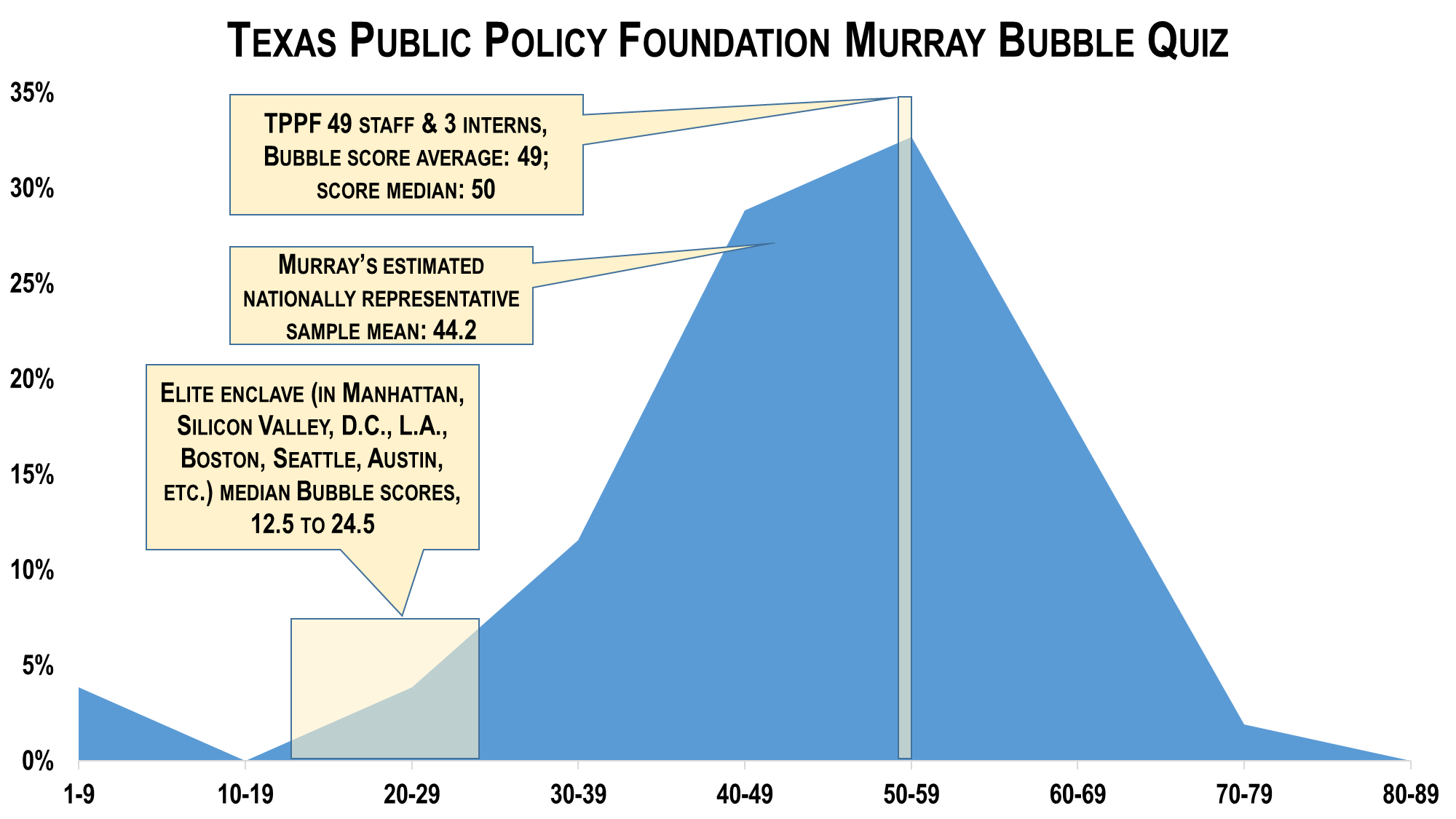This commentary originally appeared in Real Clear Policy on April 26, 2016.
Do the staff at national think tanks reflect the nation as a whole? Or are they more representative of the Acela Corridor, that narrow slice of America from D.C. to Boston where they are headquartered?
It's a serious shortcoming if national policy staffers too frequently have an urban pedigree, only have friends with similar views and education, and don't think much of their fellow Americans in flyover country, if they think of them at all. If staff at these institutions — who are charged with generating new ideas, turning those ideas into policies, and then convincing government officials to implement those policies — have little in common with the very people they claim to help, how can they be effective?
Elites' lack of familiarity with mainstream America is extensively documented in Angelo Codevilla's book The Ruling Class, and it was recently acknowledged by liberal writer Emmett Rensin in a Vox essay as well. Of the left, Rensin writes that
a movement once fleshed out in union halls and little magazines shifted into universities and major press, from the center of the country to its cities and elite enclaves. … Finding comfort in the notion that their former allies were disdainful, hapless rubes, smug liberals created a culture animated by that contempt.
But state-level think tanks likely don't share this national-level weakness. Where national think tanks generally draw on a narrow base of experience, then offer advice to the entire nation, state think tanks are apt to more closely represent residents in the surrounding state and offer solutions crafted with first-hand knowledge.
To test this proposition, I turned to Charles Murray's "Bubble Quiz" — a 25-question survey that attempts to gauge a respondent's "isolation from mainstream white America" (which, while receding as a percentage of the population, is still a majority). Questions include whether you've lived in a small town, whether you've served in the military, etc.
Murray estimates that the mean for a nationally representative sample would be 44, with a lower score indicating more isolation from, and ignorance of, mainstream culture and experiences. When Murray analyzed scores from those who took the quiz online through PBS, he found that elite enclaves from Manhattan to Silicon Valley — and even Austin — had median scores ranging from 12.5 to 24.5.
When I took the quiz myself, I received a 50 — in spite of graduating from an elite school (Claremont McKenna College on an Army ROTC scholarship) and whiffing many of the pop-culture questions dealing with the likes of NASCAR and television.
Curious, I asked my colleagues at the Texas Public Policy Foundation, a state-level conservative think tank, to take it. My hunch was that they would score pretty close to Murray's national mean of 44.
In fact, they had a median score of 50. Here's the full distribution of scores from our staff and interns:

My bet is that most national think tanks inside the Washington Beltway would have a Bubble Quiz score more Manhattanite than Middle American. I advanced this theory when I circulated TPPF's results in an office email, prompting a colleague to reply, observing:
I agree with you about the DC-based think tanks. During my nearly 13-year DC experience, I purposely spent every bit of vacation back here in God's Country [Texas] because I saw the bubble and didn't want to get sucked in. I keep a copy of Dr. Codevilla's book, "The Ruling Class," in my office to remind me about that bubble. And shop Walmart (1/2 the price of Target).
Perhaps Murray should add a question about shopping at Walmart to his next iteration of the Bubble Quiz.
America's ongoing turmoil is partly fueled by the growing distrust between the cloistered elites and the rest of the nation. This points to the vital importance of state-level think tanks and their mission to formulate effective policies based on personal connections with average Americans. Further, it suggests that a return to federalism would not only result in policies tailored to specific regions, but also result in less resentment directed at a distant, condescending ruling class demanding compliance with its narrow worldview.